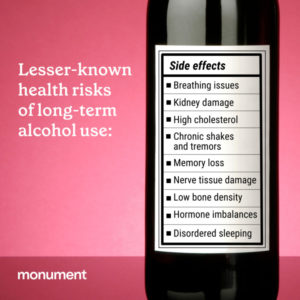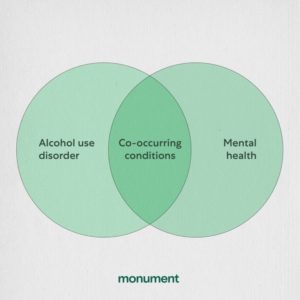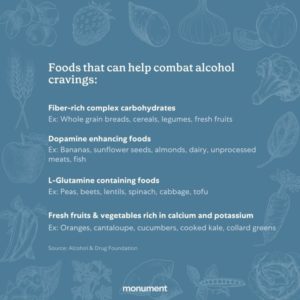It is well-known that drinking alcohol can significantly affect your physical and mental health. What many people aren’t aware of is that the driving force behind many of these side effects can be traced back to alcohol-induced inflammation. Learning more about the connection between alcohol and inflammation can help you better understand the role alcohol is playing in your life, and how to find relief.
Chronic Inflammation & Alcohol: An Introduction
What is Inflammation?
Inflammation is a natural response the body uses to fight off potential harm. When a harmful intruder is introduced, through infection, injury, or ingesting a toxin, the body releases chemicals that trigger an inflammatory response from your immune system in an attempt to get rid of it. Visible signs of inflammation include swelling, redness, pain, and warmth.
When inflammatory cells are successful at eliminating a harmful intruder, the inflammation process resolves itself. However, when someone is exposed to a harmful intruder for a longer period of time, the inflammatory response can become chronic. The inflammatory cells that were signaled to kill off potential harm stay active, and eventually start damaging healthy cells, tissue, and organs.
How Does Alcohol Cause Inflammation?
Alcohol is a toxin that can cause damage at the cellular, tissue, and organ levels. Consuming alcohol can trigger inflammation across the entire body, including in the gut, liver, face, joints, and brain. Alcohol can cause two types of inflammation: acute inflammation and chronic inflammation.
Acute Inflammation
Acute alcohol-induced inflammation describes the body’s immediate inflammatory response when alcohol is consumed. This often results in hangover symptoms like headaches and nausea. Some other acute inflammation side effects include dehydration, face puffiness, inflamed stomach lining, and swollen feet. Typically these symptoms can resolve themselves within a few days after drinking.
Chronic Inflammation
Chronic inflammation occurs when unhealthy alcohol use triggers various reactions in the body that cause inflammation to intensify over time instead of resolve. In the gut, for example, alcohol can cause an overgrowth of bacteria. This overgrowth creates an increase in bacterial waste products including endotoxins. Endotoxins are chemicals that activate the proteins and immune cells that promote inflammation. With more endotoxin production, inflammation worsens instead of improving.
Another reason alcohol use can lead to chronic inflammation is because of a protein called C-reactive protein. A study from the University of Porto found that higher amounts of alcohol in the body led to higher levels of C-reactive protein (CRP). The liver makes more CRP when it becomes inflamed. The more CRP present in the blood, the more inflammation spreads into the whole body.¹ This positive feedback cycle is indicative of chronic inflammation.
Effects of Alcohol-Induced Inflammation
Alcohol-induced inflammation causes changes in the entire body and puts you at greater risk for various health conditions. While the effects of alcohol-induced inflammation can be disconcerting, changing your relationship with alcohol can immediately reduce inflammation and allow the body to heal in incredible ways.
Alcoholic Hepatitis and Cirrhosis
Alcoholic hepatitis is an inflammatory condition caused by unhealthy alcohol use. When the liver breaks down alcohol it produces toxins. When the liver is healthy, these toxins can be cleared from the body. With extended use, the liver becomes less successful at getting rid of these toxins, and liver damage occurs. Alcoholic hepatitis occurs when the liver becomes more inflamed and swollen, and liver cells are destroyed. If a person then continues to consume alcohol, they may develop cirrhosis. This is a serious and irreversible condition where scar tissue builds up inside the liver and replaces the normal cells of the liver.
Gut and Systemic Inflammation:
Alcohol disrupts the gut barrier, increasing its permeability and allowing harmful bacteria and their toxins to enter the bloodstream. This can lead to systemic inflammation affecting various organs, including the liver and brain. The inflammatory response in the gut involves oxidative stress and immune system activation, further exacerbating alcohol-induced organ damage. These insights underline the complex relationship between alcohol consumption and systemic inflammation.
Alcohol and Bloating
Bloating is a common and often uncomfortable side effect of alcohol consumption. When you drink alcohol, it can irritate your gastrointestinal tract, leading to inflammation and swelling in the stomach and intestines. Alcohol also slows down digestion and can disrupt the balance of gut bacteria, contributing to a buildup of gas and bloating. Furthermore, many alcoholic beverages contain high levels of sugar and carbonation, both of which can increase gas production and bloating. To reduce bloating, it’s advisable to drink alcohol in moderation, stay hydrated with water, and avoid mixing alcohol with sugary or carbonated beverages.

Increased Risk of Infections
Chronic inflammation from alcohol damages the immune cells and fine hairs that clear viruses and bacteria out of the airways. This may make someone more at risk for bacterial and viral infections in the lungs and respiratory tract.
Heart Disease
Inflammation also increases the risk of developing heart disease. High sensitivity C-reactive protein (hs-CRP) is a measure of inflammation used to evaluate the risk of developing coronary artery disease. A Norwegian study showed that people with heavy drinking habits had high levels of hs-CRP, meaning that the inflammation was causing ongoing damage of blood vessels in the heart and increasing the risk of heart disease.²
Joint and Muscle Conditions
Joints and muscles are affected by inflammation. Firstly, alcohol’s dehydrating effect can create less lubrication between the joints which can lead to persisting joint inflammation and pain. Alcohol is also high in purines, a substance that gets broken down into uric acid. Excessive uric acid creates sharp crystals in the joints, causing painful inflammation and conditions like osteoarthritis and gout. Lastly, alcohol-induced inflammation is known to worsen symptoms of fibromyalgia, a condition that causes widespread muscular pain throughout the body.
Brain Damage
The brain is another area commonly affected by inflammation from alcohol. There are specific cells in the brain that are part of the brain’s immune system. When these cells are exposed to alcohol, they produce pro-inflammatory chemicals called cytokines. Repeated exposure to alcohol leads to a long-term activation of these inflammation-inducing chemicals, resulting in neuronal damage, cell death, and behavioral changes such as anxiety and impaired cognitive function.³
Inflammation from alcohol has also been shown to directly damage the white matter and gray matter in the brain. White matter damage can affect problem solving, multitasking, and memory. Gray matter damage can create issues with movement, memory, and emotions. In general, long-term inflammation of the brain leads to scarring and brain volume shrinkage.⁴
Researchers at Scripps Research Institute have discovered that heavy alcohol consumption increases levels of the immune signaling molecule interleukin 1β (IL-1β) in the brain, particularly in the medial prefrontal cortex (mPFC), which is crucial for regulating emotions and behavior. This increase in IL-1β contributes to inflammation and is associated with risky decision-making and impulsivity in individuals with alcohol use disorder (AUD). The findings suggest potential treatments for AUD using existing anti-inflammatory drugs targeting the IL-1β pathway.

Mental Health Conditions
Many people are unaware that alcohol-related inflammation can also affect your mental health. Research shows that nearly one third of patients with alcohol use disorder have mood disorders such as depression, and 37% of patients have anxiety disorders. While there are many reasons why alcohol use disorder, anxiety, and depression are commonly co-occuring conditions, inflammation plays a role. Cytokines, the inflammation-related chemicals that alcohol releases in the brain, are known to exacerbate symptoms of depression, anxiety, and alcohol cravings.⁵ Working with a therapist in specialized alcohol therapy can help treat alcohol use disorder and mental health conditions simultaneously.
How to Reduce Inflammation from Alcohol
Change Your Relationship with Alcohol
The best way to reduce alcohol-induced inflammation and the related short-term and long-term effects is to change your drinking habits. Depending on your symptoms and health risks, you can decide if moderation or abstinence is right for you. And you don’t have to do that alone. At Monument, you’ll work with a Care Team to discuss your drinking habits and medical history, and come up with a treatment plan specific to your needs and goals.
Stay Hydrated
Hydration is important. If a person chooses to continue to drink in moderation, some of the effects of the inflammation associated with alcohol use can be offset by good hydration. A good rule of thumb is to drink an 8 ounce glass of water after each alcoholic beverage you consume. Because sugar worsens inflammation, also try to avoid sugary alcoholic beverages.

Make Diet Changes
Many of the foods that go along with drinking include things that cause inflammation. For example, refined carbohydrates (think sweet foods), fatty or fried foods (pizza, fries), and red meats and processed meats (tailgate foods like burgers and hot dogs) are known to cause inflammation. Making diet changes can help offset chronic inflammation. Recommended foods include fruits and vegetables high in vitamin C (strawberries, blueberries, cherries, citrus fruits, tomatoes), green leafy vegetables, and heart healthy fats (olive oil, salmon, and nuts). A good example of this is the Mediterranean diet plan.
Other lifestyle changes that can help reduce inflammation include exercising for 20 minutes a day, maintaining a healthy weight, getting enough sleep (7-9 hours/night), and decreasing stress through relaxation and mindfulness techniques.
Benefits of Reducing Alcohol Related Inflammation
Reducing alcohol-related inflammation can provide many benefits to your overall health and wellbeing. You may see improved blood sugar levels and decreased cholesterol. Pain symptoms from joint and muscle inflammation tend to decrease. Negative mood changes may improve, and energy can increase as a result. There’s also a decreased risk of developing various health conditions including:
- Liver damage
- Obesity
- Heart disease
- Diabetes
- Depression
- Cancer
Changing your relationship with alcohol allows your body and mind space to recover from inflammation and regain its natural balance. It can also introduce several other benefits of sobriety. There’s many resources to help you make a change. At Monument, we provide a judgment and stigma-free alcohol treatment program and support every step of the way. Whatever the challenge, you are not alone.
Sources:
- University of Porto Medical School. “Alcohol intake and systemic markers of inflammation–shape of the association according to sex and body mass index, https://www.ncbi.nlm.nih.gov/pubmed/20083478.” Accessed Apr, 10. 2022.
- Translational Psychiatry. “The link between inflammation, bugs, the intestine and the brain in alcohol dependence, https://doi.org/10.1038/tp.2017.15.” Accessed Apr, 10. 2022.
- Verywell Mind. “How Alcohol Compounds Its Damage to the Brain, https://www.verywellmind.com/alcohol-compounds-its-damage-to-the-brain-62747.” Accessed Apr, 10. 2022.
- Healthline. “Anti-Inflammatory Diet 101: How to Reduce Inflammation Naturally, https://www.healthline.com/nutrition/anti-inflammatory-diet-101?c=51535650010.” Accessed Apr, 10. 2022.
